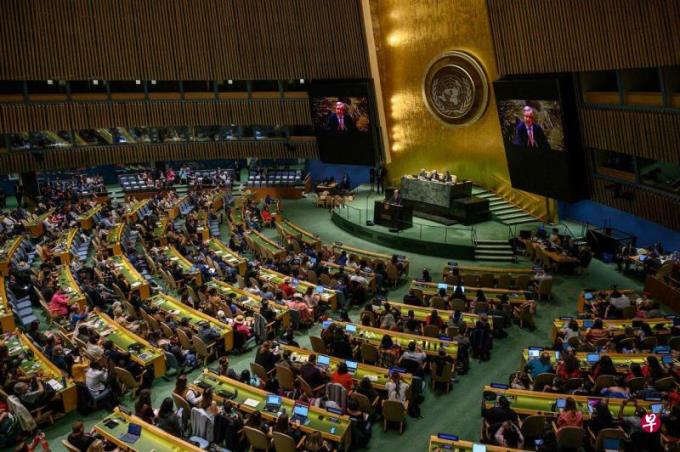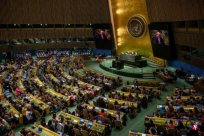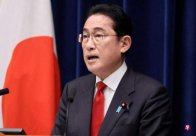
(Washington Composite Electric) U.S. foreign leaks point out that when the confrontation between the United States and China and Russia has become increasingly upgraded, the main developing countries such as India, Brazil, Pakistan, and Egypt have chosen not to be involved in it, and some even use it even using it.The competition between the powers is for the benefit of the country.
The Washington Post reported that American intelligence confidential documents appeared on the free network real -time communication platform, including revealing rare information that the main developing countries calculated.According to reports, these regional forces maintain a wait -and -see attitude towards the United States with the confrontation between the United States and China, which allows the US government to face resistance when fighting for major countries to support the global influence of China and Russia.
For the above reports, both the White House and the Ministry of Defense refused to comment.However, Specker, a scholar of Washington Foreign Policy Think Tank and Carnegie International Peace Foundation, said that the United States is facing new competition, and China has played a new influence in the economic and military field.Stress, developing countries are therefore adjusting policies in response to the new situation.He said: "Since it is not clear who will become the leader in 10 years, these countries now choose to decentralize risks and bet on both sides."
Pakistan is an obvious example.Intelligence documents say that Pakistan has received billions of US dollars of economic and security assistance after the September 11 terrorist attack, but now it relies heavily on China's investment and loans.Pakistan Foreign Minister Hina said in an internal announcement in a internal notice that Pakistan "cannot continue to try to maintain neutrality between China and the United States."Hina, who once served as a foreign minister, said that if Pakistan maintains partnership with the United States, it will eventually damage the "substantial strategy" interests of friendly China.Relevant documents did not explain how the United States obtained these internal notifications.
According to another document marked on February 17, the assistant of Pakistan Prime Minister Sharv advocated that in the upcoming UN resolution voting, he should not support Russia's invasion of Ukraine to support votes.Assistant said that supporting this resolution means that Pakistan has changed its previous position and may undermine trade and energy agreement negotiations between Pakistan and Russia.
On February 23, the UN General Assembly, on the eve of the first anniversary of the Russian and Ukraine War, The Ukrainian peace resolution, which requires Russia to withdraw to vote.The United University passed the resolution with an overwhelming support vote, including Pakistan's 32 countries.
India also abstains in voting, which is similar to Pakistan.Another disclosure document shows that during the February talks with Russia's national security advisers, the Indian party promised to support Russia on multilateral occasions, and India would work hard to ensure that during the period of the 20th National Group (G20) rotating chairman, the issue of war was not the issue of war.Will be discussed.One week later, at the G20 Foreign Minister's meeting held in New Delhi, due to the , resulting in the conference unable to reach a consensus on a broader global challenge.
People familiar with India's position said that India does not support Russia to launch war, but India has long relying on Russia's support in the United Nations and has to maintain energy and economic connection with Russia.
According to the discharge documents, the Office of the National Intelligence Director evaluated in February that Central Asian countries are trying to use the wrestling of the United States and China and Russia to expand their own interests and reduce their dependence on Russia.There is no name for these countries, but it may include Kazakhstan and other countries.These countries have been striving for new partners who rely on Russia and seeking energy and trade.
confidential documents also revealed that the southern hemisphere, namely Asia, Africa and Latin America, positioned its own country as a diplomatic bridge between three powers.Among them, Brazilian President Lula obviously wants to get rid of the isolation diplomatic route of the former Bosonaro and win international leadership for the country.



